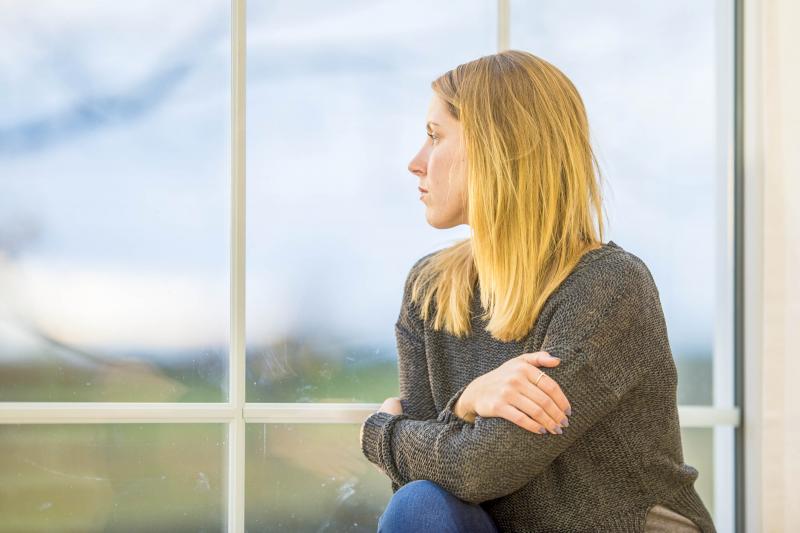Mental health professionals in Maine are raising concerns that layering additional stressors, like fear of eviction or job loss, onto the already precarious lives of low-income people during the pandemic can push them into crisis.
“Putting tremendous stress — whether it be financial stress or the stress of eviction on families that are already multi-stressed due to the circumstances tied up in the working-class struggle — is sometimes enough to push families into crisis,” said Patrick O’Connor, a psychologist in Portland.
O’Connor, who runs a practice specializing in childhood trauma and serves many clients on MaineCare, the state’s Medicaid program, explained to Beacon that destabilizing events can trigger past trauma.
“For many folks who may experience something as disruptive as an eviction, it can be a reactivating event,” he said. “It’s sometimes enough to push families into operating in a trauma state.”
Psychological effects of eviction can last years
On Wednesday, The Wall Street Journal reported that nearly a third of U.S. renters didn’t pay any rent during the first week of April.
While no such data yet exists for Maine, O’Connor said the increased threat of eviction in Maine would have profound effects on parents, children, trauma survivors and people in recovery — a stable home environment being one of the key factors in helping people maintain sobriety, he said.
Governor Janet Mills had initially voiced reticence to enacting a moratorium on evictions and foreclosures, saying she was speaking with “landlords making sure that they are ready to accommodate people’s needs.”
At a press briefing Tuesday, however, Mills said her administration is now considering an executive order to halt eviction orders and a short-term funding source to help Mainers facing eviction pay their rents.
“The idea of folks stepping up to the plate universally and working with their tenants, seems to me like magical thinking,” O’Connor said. “A lot of folks are not viewing this as a mental health issue. It very much is a mental health issue. There is definitely a body of research on the effects of evictions.”
O’Connor said the psychological effects of a single eviction can last for years.
“Their brain is basically responding in a fight or flight mode at that point,” he explained. “It is trying to take in all the possible threats and working extremely hard to do that.”
“Oftentimes, people adopt a more anxious approach to the world around them as a result. They can become hyper-vigilant. There may be a sense of being targeted. There may be a sense of potentially being further victimized,” he said. “The person’s worldview can certainly change.”
Increase in suicidal ideation
Jenny Ingwersen is a clinical counselor in Biddeford who runs a practice with about 25 regular clients, none of whom have yet faced job loss or the threat of eviction or foreclosure.
She said she has seen a variety of different responses in the clients she counsels in the first weeks of social distancing.
“A lot of the work is the same as it has been. It’s interesting to me because it’s like life just kind of goes on,” she said. “I also have a subset of clients who are sort of thriving, who are doing much better than they have. Those are people who have significant social anxiety.”
Ingwersen said, however, increased social isolation is taking its toll on others. “There’s increased depression and anxiety and that’s mainly people who have already felt kind of isolated and lonely,” she said. “I know that a lot of mental health providers are seeing that there is an increase in suicidal ideation.”
Ingwersen also counsels about six low-income people on MaineCare, as well as some children with behavioral issues.
“I have one [child] client who typically has a lot of aggressive behaviors and issues with compliance. And that’s practically disappeared,” she said. “I’m kind of surprised by that. They are really enjoying not having to kind to rush through their schoolwork and being able to work on their own schedule.”
‘Stakes are extremely high for children’
But O’Connor said that he is concerned for many of his child clients in this unprecedented time.
He said that children who lose housing are often thrust into living situations with other people their parents do not fully know or trust. He said that such situations can lead to an increased risk for sexual abuse.
“The stakes are extremely high for children in this context,” he said.
O’Connor also said that he sees children take on the burdens that their parents bear when facing financial stress and eviction.
“I think oftentimes kids sense how a parent is carrying an emotional burden and they engage differently with them or they may share less because they don’t want to burden the parents further,” he said. “These dynamics have the potential to develop long term patterns that really affect each individual’s engagement with the world around them.”
O’Connor said that he hopes the Mills administration will take swift action to protect Mainers who have or may face evictions or foreclosures in the coming months. Many of those people, he warns, are already carrying unseen trauma.
“Oftentimes, we may look at our own circumstances and project our own ideas about resiliency onto others without really knowing what the lived experiences of some of these folks are,” he said. “They need to be talking to people who are actually living this experience, rather than just making assumptions.”
Dan studied journalism at Colorado State University before beginning his career as a community newspaper reporter in Denver. He reported on the Global North's interventions in Africa, including documentaries on climate change, international asylum policy and U.S. militarization on the continent before returning to his home state of Illinois to teach community journalism on Chicago's West Side. He now lives in Portland.



























